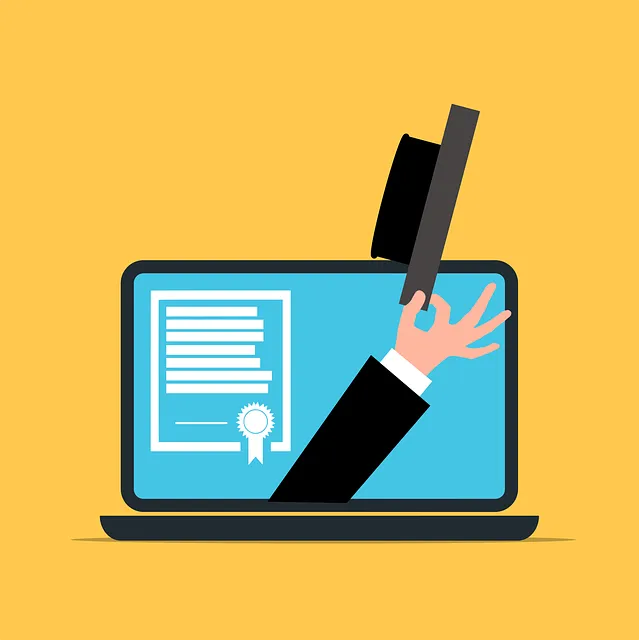Confidential Computing safeguards human rights activists' data and privacy through tools like Private Internet Access for Journalists Worldwide, enabling them to communicate securely, collaborate freely, and share sensitive information without fear of surveillance. VPNs and encryption technology protect digital footprints, maintain anonymity, and preserve source integrity, crucial for journalists facing significant risks in hostile environments. This empowers defenders to expose injustices, advocate for change, and drive positive impacts globally.
Confidential computing is a game-changer for human rights activists navigating digital risks. This powerful approach ensures journalists’ privacy and protects their sensitive sources and data, even in the face of heightened surveillance. By implementing private internet access (PIA) tools, activists can communicate securely, fostering local impact globally. The article explores these strategies, delving into the digital landscape where confidentiality meets activism, ultimately empowering reporters worldwide to continue their vital work without fear of exposure.
- Understanding Confidential Computing: Protecting Activists' Privacy
- The Digital Risks Faced by Human Rights Journalists
- Implementing Private Internet Access: Tools and Techniques
- Global Reach, Local Impact: Empowering Activists Through Secure Communication
Understanding Confidential Computing: Protecting Activists' Privacy

Confidential Computing, a revolutionary approach in data protection, offers human rights activists powerful tools to safeguard their privacy and sensitive information. This technology ensures that data remains confidential even while it’s processed, preventing unauthorized access and potential surveillance. For activists working on critical issues globally, where tracking and targeting are common risks, Confidential Computing provides a much-needed layer of security.
By utilizing Private Internet Access for Journalists Worldwide, activists can establish secure connections, encrypt their data, and maintain anonymity online. This enables them to communicate, collaborate, and share resources freely without fear of exposure. With these advanced privacy measures, human rights defenders can continue their vital work, documenting human rights abuses, organizing campaigns, and advocating for change while keeping their activities hidden from prying eyes.
The Digital Risks Faced by Human Rights Journalists

Human rights journalists often find themselves at significant digital risks, facing threats to their privacy and data security while reporting on sensitive issues. In many cases, their work involves uncovering corruption, exposing human rights abuses, or documenting political turmoil—all activities that can make them targets for surveillance, hacking, or even physical harm. The use of traditional communication channels can leave journalists vulnerable, as their digital footprints may be tracked, monitored, and used to compromise their safety and the security of their sources. This is especially true in countries with strict information controls, where dissent is suppressed, and independent media faces relentless pressure.
To mitigate these risks, Private Internet Access for Journalists Worldwide has become a crucial tool. It enables them to communicate securely, ensuring that their messages, files, and identities remain confidential. With encrypted connections, journalists can access the internet anonymously, protecting themselves from targeted online attacks and preserving the integrity of their sources. This privacy is essential for maintaining trust in their work, allowing them to operate freely without fear of retribution or censorship.
Implementing Private Internet Access: Tools and Techniques

For human rights activists working in sensitive environments, ensuring Private Internet Access (PIA) is paramount to protecting their digital footprint and maintaining anonymity. PIA tools offer a robust layer of security by encrypting internet traffic, making it impossible for unauthorized parties to access or track online activities. One of the most popular options, known as Virtual Private Networks (VPNs), allows users to create a secure connection over a public network, such as the internet. This technology is especially valuable for journalists worldwide who need to access restricted content or communicate securely with sources.
Implementing PIA involves utilizing specialized software and protocols. Open-source tools like Tor provide an anonymous browsing experience by routing internet traffic through multiple servers, making it nearly impossible to trace back to the original user. Additionally, advanced encryption techniques, such as those offered by Signal or WhatsApp, ensure secure messaging and voice calls. Human rights activists can also leverage browser extensions that block trackers and ads, further enhancing their privacy while browsing the web. These tools collectively enable activists to navigate the digital realm with peace of mind, safeguarding their identities and sensitive information from prying eyes.
Global Reach, Local Impact: Empowering Activists Through Secure Communication

In today’s interconnected world, human rights activists face unprecedented challenges in their efforts to expose injustices and advocate for change. Confidential computing offers a powerful solution by enabling secure communication, ensuring that sensitive information remains private and out of the reach of prying eyes. This is especially crucial for journalists worldwide who often work in hostile environments where their safety and sources’ privacy are at risk.
By leveraging Private Internet Access for Journalists Worldwide, activists can protect their digital footprint, maintain anonymity, and securely exchange critical data. This enables them to navigate treacherous landscapes, uncover truths, and share information without fear of surveillance or retaliation. Empowered with confidential computing tools, human rights defenders can amplify their voices, spark global awareness, and ultimately drive positive change on a local level, making a tangible impact across borders.
Confidential computing offers a robust shield for human rights activists navigating the digital landscape. By leveraging tools and techniques like Private Internet Access, journalists can safeguard their communications, protect sensitive data, and amplify their impact globally. This secure framework empowers activists to continue their vital work without fear of surveillance or censorship, ensuring their voices are heard worldwide. With these innovations, we can foster a more secure and supportive environment for those advocating for human rights in the digital age.
